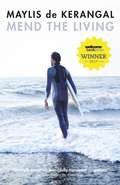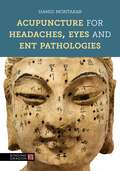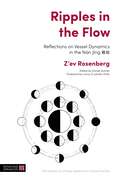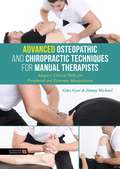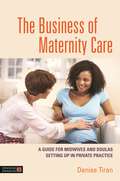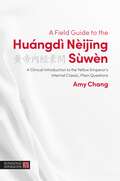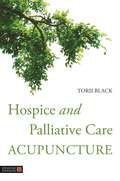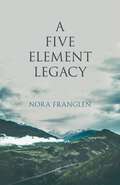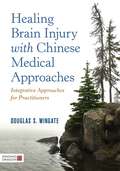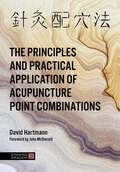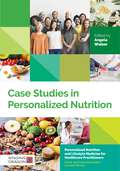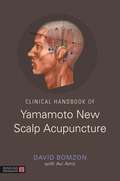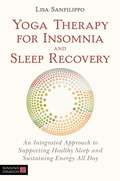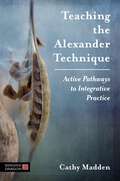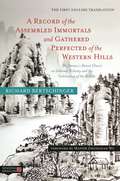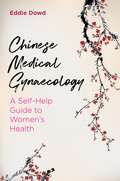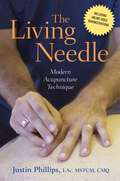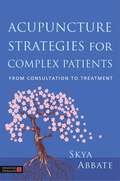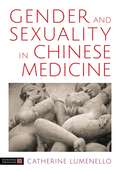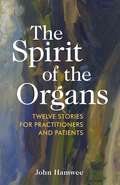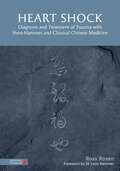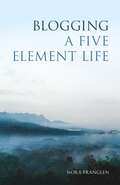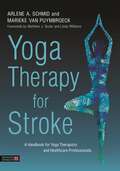- Table View
- List View
Mend the Living: WINNER OF THE WELLCOME BOOK PRIZE 2017
by Maylis de KerangalWinner of the Wellcome Book Prize 2017.Longlisted for the Man Booker International Prize 2016. Now a major French film, REPARER LES VIVANTS/HEAL THE LIVING, directed by Katell Quillevere and starring Emmanuelle Seigner.A twenty-four-hour whirlwind of death and life.In the depths of a winter's night, the heart of Simon Limbeau is resting, readying itself for the day to come. In a few hours' time, just before six, his alarm will go off and he will venture into the freezing dawn, drive down to the beach, and go surfing with his friends. A trip he has made a hundred times and yet, today, the heart of Simon Limbeau will encounter a very different course.But for now, the black-box of his body is free to leap, swell, melt and sink, just as it has throughout the years of Simon's young life.5.50 a.m.This is his heart.And here is its story.Translated from the French by Jessica Moore
Ripples in the Flow: Reflections on Vessel Dynamics in the Nàn Jing
by Z'ev RosenbergIn Z'ev Rosenberg's second book, the scholar-physician shares his insights from his study of discrimination of movement in the vessels in the Nàn Jing. This book provides an accessible window into the world of classic vessel discrimination, and a deep explanation of the Nàn Jing as well as advising how it can inform modern clinical practice. The first chapters of the Nàn Jing examine the parameters of depth, length, qualities, five phase relationships, viscera/bowel, channel/network vessel and season. Ripples in the Flow is designed as a compendium text that provides a commentary on these essential vessel discrimination chapters, as a teaching text, and as a clinical manual for practitioners of both acupuncture and herbal medicine. It will be especially useful for practitioners of five phase approaches to Chinese and Asian medical systems, as it will provide clear classical references for the knowledge that they have been taught in their formal training.
Advanced Osteopathic and Chiropractic Techniques for Manual Therapists: Adaptive Clinical Skills for Peripheral and Extremity Manipulation
by Giles Gyer Jimmy MichaelDevelop your knowledge of chiropractic and osteopathy with this comprehensive guide to advanced skills and peripheral manipulation techniques. This practical handbook takes into account the latest research, highlighting the neurophysiological effects of these techniques, and providing clear, step-by-step guidance from experienced manual therapists.Covering key topics such as the effects of manipulation on organs, working in sports settings, and motion palpation misconceptions, the book demonstrates how to work with a range of joints with advice on diagnostics, contraindications and safety precautions. This is an expert collaboration between professions and can be used as the go-to clinical handbook for all manual therapists.
The Business of Maternity Care: A Guide for Midwives and Doulas Setting Up in Private Practice
by Denise TiranThis book provides a guide for midwives and doulas who want to establish a maternity-related business offering services such as pregnancy complementary therapies, antenatal classes, lactation support or full doula care. The book is designed to help potential entrepreneurs explore whether this is the right decision for them and provides guidance on the legal, financial and business aspects of setting up in private practice, specifically tailored to maternity care. Advice is given on marketing and pricing and there is debate around the professional and ethical issues for midwives and doulas, including avoiding conflicts of interest and maintaining professional integrity. Case studies of midwives and doulas who have taken the step to set up in private practice are included, and there are various activities to help the reader with their personal plans for their business.
A Field Guide to the Huángdì Nèijing Sùwèn: A Clinical Introduction to the Yellow Emperor's Internal Classic, Plain Questions (The Classics of Chinese Medicine in Clinical Practice)
by Amy ChangThe most important classical text of Chinese Medicine, The Yellow Emperor's Classic of Chinese Medicine is often seen as daunting by students who are faced with a variety of different translations, of which some may not be reliable. This introductory guide makes it accessible to all, providing a summary of each chapter which emphasises the clinical relevance of the text.The author draws out how the text can be used to inform and improve clinical practice. It avoids overly scholarly discussions, and does not dwell on the minutiae of translation, making this book an easy and enlightening read.
Hospice and Palliative Care Acupuncture
by Torii BlackA handbook for acupuncturists and healthcare practitioners on the use of acupuncture for end-of-life care. The book covers the major hospice and palliative care diagnoses from a Chinese medicine perspective, as well as grief and loss, and includes the roots of Chinese historical perspectives on death and dying. The acupuncturist is introduced to the working medical model of hospice care and the interdisciplinary team approach and provided with evidence-based strategies for the use the acupuncture in symptom management.
Extraordinary Chinese Medicine: The Extraordinary Vessels, Extraordinary Organs, and the Art of Being Human
by Thomas Richardson William R. MorrisPresenting a new model that explains the links between our extraordinary vessels and organs, this innovative guide shows how they relate to Daoist cosmology. Offering new insights into the unity within Chinese medicine, it helps practitioners and students of Daoism improve their theoretical understanding, as well as their practice.
The Practice of Tui Na: Principles, Diagnostics and Working with the Sinew Channels
by Robert AspellTui Na is one of the 'Four Pillars' of Chinese medicine (alongside Acupuncture, herbal medicine and Qi Gong) and is a form of bodywork that includes acupressure, massage techniques, assisted stretching, and joint mobilisations or adjustments that are all based on the key medical principles and diagnostics of the Classics of Chinese medicine. This book is an accessible clinical handbook of Tui Na principles and practice.Tui Na can be used as much more than a musculoskeletal therapy, but in order to use it to its full potential as a medical intervention, it is essential to understand its uses on the Sinew channel system as opposed to the other channel systems commonly used within acupuncture. Tui Na requires an understanding of the principles and pathways of the Sinew channels as a standalone system of the body, as well as its relationship to the other channel and organ systems, and this book provides an accessible introduction to these channels before moving onto Tui Na practice. There are Sections on Diagnosis and Assessment, Techniques and Treatments with hand and joint manipulation techniques covered in detail, along with instruction on developing a Tui Na prescription and protocols for the treatment of common conditions.This book can be used by beginners studying on a hands-on practical course in Tui Na, in addition to qualified Chinese medicine and Tui Na practitioners.
A Five Element Legacy (Five Element Acupuncture)
by Nora FranglenExplore Nora Franglen's insights derived from decades of practice as a five element acupuncturist in this new collection. Covering tips on patient care and the patient-practitioner relationship to advice on a deeper understanding of the elements, of the healing practice, and of humanity's links to nature, the book also touches on the spiritual aspects of the work and the need for self-awareness in the practitioner. For acupuncturists and Chinese medicine practitioners, or anyone interested in the healing arts, this book is full of useful guidance.
Healing Brain Injury with Chinese Medical Approaches: Integrative Approaches for Practitioners
by Douglas S. WingateLearn to treat symptoms of traumatic and acquired brain injury using Chinese medicinal methods of acupuncture and herbal medicine. Covering both Western and Chinese medicine understandings of the brain, the book provides a thorough exploration of treatment options, including multiple acupuncture systems, Chinese herbal formulas, dietary and orthomolecular recommendations, and standard biomedical approaches. Many symptoms associated with brain injury can be effectively addressed or reduced using TCM, including chronic headache, fatigue, dizziness, pain, and anxiety among others. The book highlights the special considerations that should be taken when working with people with brain injury, as well as when treating particular subpopulations, including pediatrics and veterans.
The Principles and Practical Application of Acupuncture Point Combinations
by David HartmannA foundation textbook explaining how point combinations work in acupuncture practice. The book explains how each point works and how best to combine points for good clinical results. Students and practitioners need to respond to clinical challenges in creative and flexible ways and this book guides them in the art of construction of effective treatment protocols. Clinically useful combinations are presented throughout, along with case studies showing the application of theory to practice.
Case Studies in Personalized Nutrition (Personalized Nutrition and Lifestyle Medicine for Healthcare Practitioners)
by Helen Lynam Miguel Toribio-Mateas Romilly Hodges Jo Gamble Elspeth Stewart Claire SehinsonA practical reference and teaching book of case studies for nutrition practitioners and other healthcare professionals, demonstrating how to apply the latest evidence-informed principles of personalized nutrition.Covering a range of complex cases such as autoimmunity and inflammation, hormonal disruption, mental health concerns and more, this edited collection explains the most recent developments in nutrition science and how these can inform patient management. Complete with in-depth case histories, Q&As with the practitioner and explaining the clinical reasoning behind decisions, this is the most comprehensive guide to help put theoretical knowledge of personalized nutrition into practice.
Clinical Handbook of Yamamoto New Scalp Acupuncture
by David BomzonThis handbook is an invaluable resource on the principles and practice of Yamamoto New Scalp Acupuncture (YNSA). This popular form of scalp acupuncture is used to treat a wealth of neurological conditions, and is very effective in stroke patients with pain and restricted mobility, providing relief from the symptoms. David Bomzon is an international expert on YNSA and he includes step-by-step explanations of points, points location, indications for needling, and clinical cases, all supported by line drawings and photographs. Uniquely, this book is written by an acupuncturist for acupuncturists, chiropractors and physical therapists, and the author clearly reconciles the theoretical needling points described by Yamamoto with actual needling points. Basic, sensory, brain, Y (epsilon) and cranial points are all covered, as well as instructions on applying YNSA in the clinic. The handbook also explains the benefits of combining YNSA treatment with Western medicine and physical therapy, making this essential reading for all practitioners looking to expand their knowledge of scalp acupuncture.
Yoga Therapy for Insomnia and Sleep Recovery: An Integrated Approach to Supporting Healthy Sleep and Sustaining Energy All Day
by Lisa SanfilippoYoga therapy offers a truly holistic approach to solving the growing problem of insomnia. In this book expert yoga therapist Lisa Sanfilippo explains how yoga practices can be used to target the underlying issues that inhibit good quality sleep, with immediate results that build over time.Learn how to work with clients to release tension in the body that builds up during the day making it difficult to sleep at night. Honouring a natural yogic and Ayurvedic approach, and infusing it with modern neuroscience, Lisa also addresses the deeper emotional reasons for not sleeping well and looks at how lifestyle changes can help to achieve better quality rest. With the body-mind connection at its core, this book shows how to support better health holistically to restore balance in each layer of the body.
Teaching the Alexander Technique: Active Pathways to Integrative Practice
by Cathy MaddenThoughtful and accessible, this guidebook unpacks the teaching process of the Alexander Technique for new and more experienced practitioners. By demonstrating the pathway from learning the Alexander Technique for oneself to teaching it, Madden identifies the skill sets required for excellence in teaching the Alexander Technique, and shows readers how they can acquire and develop these skills themselves. Observation, communication and tactile skills are all covered, and particular attention is paid to group teaching, which is neglected in current literature. This is combined with discussion of current research on education and neuroscience, enabling the reader to build a truly informed and effective practice. Featuring a variety of examples and stories, it will prove a valuable resource to any teacher of the Alexander Technique, both active and prospective, and to practitioners of other modalities exploring ways to deepen their practice.
A Record of the Assembled Immortals and Gathered Perfected of the Western Hills: Shi Jianwu's Daoist Classic on Internal Alchemy and the Cultivation of the Breath
by Zhongxian Wu Richard BertschingerIn this Tang Classic text from the 9th Century, Daoist practitioner Shi Jianwu describes how through adapting our own breathing to the breath of the universe and daily meditation, one can develop an astral body and 'transcend earthly matters to walk in the divine'. Richard Bertschinger offers the first annotated English language translation of this text with practical guidance for Qigong, meditative practice and personal development. With elements of Daoist tradition and drawing on Mayahana Buddhist influences, this ancient guide aims to bring to the fore perceptions and focus on a natural form of breathing for pure meditation. Much of this Chinese practice has been misunderstood and lost over the years, until now. Richard's thoughtful translation and additional comments serve to distribute Shi Jianwu's original message with open interpretations for the individual reader.
Chinese Medical Gynaecology: A Self-Help Guide to Women's Health
by Eddie DowdMany of the issues that relate to women's health from period pain to infertility, can be self-treated with Chinese medicine approaches, and this clear and practical guide explains how to assess symptoms and choose the most effective form of treatment. Written for women interested in taking a more active role in their own health and well-being, the book covers health issues of the menstrual cycle, pregnancy and post-partum, menopause, fertility, and fibrocystic breast disease amongst others. Taking a holistic approach that includes the traditional Chinese approach that food is medicine, appropriate recipes are included along with other treatment suggestions. The author provides an overview of the history of Chinese medicine and a clear and simple explanation of the principles of its theoretical basis, including the 5 vital substances, organ theory, channel (meridian theory) and the nature of Yin and Yang, thus providing a context for understanding symptoms from a Chinese perspective, and treatments that can be undertaken at home.
The Living Needle: Modern Acupuncture Technique
by Justin PhillipsThis fully illustrated guide to modern acupuncture technique explores the foundational skills of the craft from a primarily energetic perspective, showing how perfecting these skills can have a profound effect on the practice of Chinese Medicine. The goal is for the clinician to be able to fully grasp what they are doing on the channels and the tissues with each of the classic manipulation techniques in a way that has hitherto been unexplored in technique textbooks, which tend to focus on the simple mechanics of technique. Organised around the structure of an actual patient encounter, the book begins with the basics of needle selection, moving through patient and practitioner position, to insertion, and then on to the various mechanical actions taken on an inserted needle, ending with the withdrawal of the needle. The skills discussed and described in this book can help expand any acupuncturist's practice through their application. Further advice and information is provided through supplementary online video demonstrations.
Acupuncture Strategies for Complex Patients: From Consultation to Treatment
by Skya AbbateA textbook on planning treatment strategy for advanced acupuncture students and new practitioners. With clear illustrations, chapter summary charts and template patient handouts, this book takes an integrative approach to diagnosis and practice and provides insightful recommendations. Covers advanced techniques including bloodletting and gua sha.
Gender and Sexuality in Chinese Medicine: The Merging Of Yin And Yang
by Catherine J. LumenelloThis progressive handbook for Chinese medicine students and practitioners looks at gender, physiology, relationships and sexual attraction from the Chinese medicine perspective. Many standard diagnostic and treatment techniques are gender-based and do not work with clients who identify as LGBT or gender/sex/relationship fluid and so these communities are currently often underserved.Catherine Lumenello accesses the Daoist, Buddhist and Confucianist roots of the medicine and explores the energetic pathways, the Three Treasures and other theories in order to understand the emotional etiology and treatment concerns prevalent within these client groups. The topics covered in the book include transgender issues, asexuality, sex addiction, sexual realignment surgery and polyamory. Incorporating client examples, illustrations, and an assortment of treatment approaches, this book is a radical re-examination of the potential of Chinese medicine.
The Spirit of the Organs: Twelve stories for practitioners and patients
by John HamweeIn the Chinese medicine tradition, understanding and resonating with the spirit of the organs leads to better diagnosis and more effective, powerful treatment. Behind most symptoms lies a disturbance of spirit, and the more alert a practitioner to the nature of such a disturbance the more effective the treatment is likely to be. John Hamwee explores the spirit of each organ not in analytical, rational, summarising language but through life stories that express the nature and tendencies of the organ at a deep level. Through the stories of 12 people that embody the unique spirit of each organ, he shows the physical, emotional and spiritual nature of each, and their related tendencies and possibilities for improved wellbeing. Written to give Chinese medicine practitioners new ways to reflect on each organ in the most complete way, this book is also a lighthearted yet profound introduction to the heart of the Chinese medical tradition.
Heart Shock: Diagnosis and Treatment of Trauma with Shen-Hammer and Classical Chinese Medicine
by Ross Rosen Dr Leon HammerThis book describes in detail the effects and ongoing impacts of trauma on the body and mind and provides the 'missing piece' in the treatment of these stubborn conditions that every practitioner confronts. Heart Shock refers to the systemic impact that emotional and/or physical trauma has on one's physiology and psychology, interfering with one's ability to heal, and also directly attributable to a host of progressive pathology. Synthesizing the teachings of Jeffrey Yuen and the Shen-Hammer lineage and focusing heavily on psychology, Ross Rosen addresses how to identify, diagnose, and treat Heart Shock from multiple perspectives, providing a multi-faceted approach to treatment, including all the acupuncture channel systems, herbal medicine and the use of essential oils. The approach presented can also be expanded to treat any condition or disease process.
Blogging a Five Element Life
by Nora FranglenBased on her widely read blog, this collection includes Nora Franglen's reflections on her own continually developing five element practice, and the lived world between 2014 and March 2017, a time of enormous change. Covering everything from politics, to her penchant for coffee shops, to how to treat patients effectively, and from tips on using moxa sticks to her acerbic thoughts on the effects of technology on society, Nora illustrates how the five elements influence, illuminate and enrich all aspects of her life, and vice versa.
Yoga Therapy for Stroke: A Handbook for Yoga Therapists and Healthcare Professionals
by Linda Williams Matthew J. Taylor Arlene Schmid Anna-Marie Van Van Puymbroeck ChancellorA guide to yoga therapy for post-stroke rehabilitation, this book is for yoga teachers and yoga therapists, but also for occupational, recreational, physical and speech therapists who work with people with stroke and may integrate yoga into their practice.Rooted in evidence-based research and written by two yoga teachers who are also academics and researchers in rehabilitation, the book provides basic information about stroke and neuroplasticity, discusses the mind body disconnect that often occurs after stroke, and provides instruction on how to improve balance, strength and range of motion. It also covers effective meditation techniques to help overcome the stress and emotional impact of stroke. Clear photographs demonstrate yoga postures and activities specifically adapted for stroke patients, alongside case studies.
